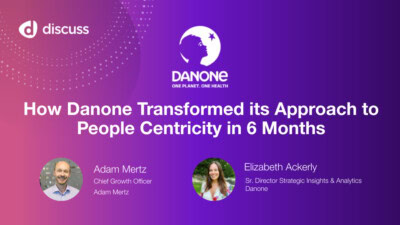Strategic Intelligence: Adapting to Market Shifts through Generative AI Insights

In today’s volatile market, keeping your business afloat feels like navigating a stormy sea without a compass. The rapid pace of technological change coupled with unpredictable consumer behaviors can easily unsettle even the most steadfast enterprises.
Thankfully, there is a way forward. Generative AI offers insights that ground your business decisions in data-driven predictions rather than guesswork. This article draws on extensive research and real-world examples to show you how these advanced tools can actually provide clarity amidst chaos. By harnessing AI’s capabilities, you can adapt to market changes more effectively than ever before.
Why Shifts in the Market Matter
Market dynamics are constantly in motion, akin to a giant jigsaw puzzle that’s constantly changing shape – sometimes gradually, and at times, all at once. In this analogy, economic changes, technological advancements, and consumer behavior trends represent the individual pieces. These changes can significantly impact business performance. For example, when COVID-19 struck, numerous brick-and-mortar stores had to swiftly transition to online sales. Even businesses that appeared invincible before had to rapidly rethink and alter their strategies.
It’s not just about survival; it’s about being able to seize opportunities too. Some businesses didn’t merely survive during these times – they thrived! By recognizing the importance of shifting with the market, they positioned themselves advantageously, made necessary adjustments, and sustained profitability despite the challenging circumstances.
Being aware of these shifts isn’t an optional luxury; it’s a matter of survival for any business. Without staying on top of these changes, there’s a high likelihood that a company will begin to fall behind. Fortunately, staying ahead of these changes fosters continued growth when others struggle to keep up.
“The only constant in life is change.” This axiom holds especially true in the world of business. Companies that lack the agility to adapt often get left behind as their competitors forge ahead, embracing new trends and technologies while they remain mired in old patterns and systems.
Consider companies like Blockbuster and Kodak. Once industry titans, they struggled to adapt quickly enough to the changing landscape. Blockbuster failed to pivot into digital streaming like Netflix did, while Kodak couldn’t embrace the transition from film to digital photography as effectively as its competitors. Consequently, both companies suffered significant setbacks when they couldn’t keep up with transformative market shifts.
Role of Generative AI in Business Strategy
Generative AI has rapidly emerged as a game-changer for businesses navigating through complex market dynamics. By leveraging advanced machine learning algorithms, Generative AI empowers organizations to harness synthetic data, generate unique business insights, and anticipate potential outcomes. This transformative capability enables businesses to proactively adapt their strategies in response to evolving market trends efficiently, from forecasting consumer preferences to identifying emerging industry patterns and optimizing operational processes.
The ability of Generative AI to produce synthetic data is particularly revolutionary. Instead of solely relying on historical information, businesses can now simulate hypothetical scenarios and evaluate alternative strategies based on synthesized yet informed data. This not only allows for proactive decision-making but also mitigates the risks associated with acting on outdated or incomplete information. By extrapolating patterns from existing data and generating new insights, businesses can stay ahead of market shifts and make more informed strategic decisions.
Consider a practical example of how Generative AI can be instrumental in reshaping business strategies: A retail company could employ Generative AI to analyze past customer behavior and forecast potential product demand. By doing so, the company can accurately predict which new products are likely to gain traction among consumers and adjust their inventory accordingly. This proactive approach minimizes the risk of overstocking or stockouts, ultimately optimizing their supply chain management while enhancing customer satisfaction.
Leveraging AI for Real-Time Market Adaptation
In today’s fast-paced and dynamic marketplace, the ability to adapt to market shifts in real-time can be a game-changer for businesses. Generative AI plays a crucial role in empowering companies with instantaneous data analysis, enabling them to gain immediate insights into changing market trends and consumer preferences. This ability is invaluable, especially in industries where quick strategic adjustments can make all the difference.
Imagine a financial firm that can utilize Generative AI to process vast amounts of stock market data in real-time, swiftly identify emerging trends, and adjust their investment portfolios on the fly. This level of agility allows them to seize opportunities and mitigate risks with unmatched speed and precision. The immediate access to actionable insights provided by AI can mean the difference between capitalizing on a lucrative investment opportunity or missing out on it entirely.
Similarly, apparel companies can harness the power of Generative AI to monitor fashion trends and consumer behavior patterns. When a sudden shift in fashion preferences is detected, AI can facilitate swift adjustments to marketing strategies and product lines. By leveraging real-time market insights, these companies can stay ahead of the curve, ensuring that their offerings align with evolving consumer demands.
This immediate implementation can make all the difference in maintaining relevance and competitive edge in an ever-evolving marketplace. In essence, Generative AI enables businesses to bridge the gap between recognizing market shifts and effectively responding to them—an invaluable asset in today’s hyper-competitive business landscape.
Now that we’ve explored the potential of leveraging AI for real-time market adaptation, let’s dive into the critical aspect of seamless customer interactions through personalized experiences.
Enhancing Decision-Making with AI Insights
The infusion of AI-generated insights into strategic decision-making processes has the potential to redefine and optimize operations across various industries. By leveraging advanced analytical tools, organizations can tap into a wealth of high-quality, data-driven insights that play a pivotal role in shaping prudent decisions. A comprehensive report by McKinsey outlines that companies incorporating AI in their decision-making processes experienced a substantial 10% increase in operational efficiency.
Strategically integrating AI-generated insights empowers decision-makers to assess intricate data patterns, gain comprehensive market intelligence, and anticipate emerging trends with heightened accuracy. This translates into the ability to make informed, forward-thinking decisions that yield tangible operational improvements and contribute to sustained business growth.
Consider the healthcare industry, where AI-driven analysis of patient data plays a transformative role. Healthcare professionals can leverage AI-generated insights to predict the most effective treatments for individual patients based on comprehensive data analysis. This equips practitioners with the critical foresight necessary to tailor treatment plans, ultimately leading to improved patient outcomes and elevated standards of care delivery.
Moreover, harnessing AI-based decision support systems serves as a catalyst for amplifying the efficiency and precision of organizations across diverse sectors. The ability to discern and act upon nuanced data-driven insights cultivates an environment where companies can proactively identify opportunities, optimize resource allocation, and craft strategic initiatives grounded in robust predictive analytics.
By enabling decision-makers to draw upon granular insights extracted from vast datasets, AI facilitates the cultivation of a proactive decision-making culture; characterized by agile adaptability and acute responsiveness to evolving market dynamics. This equips enterprises with a competitive edge, fostering innovation and resilience amidst ever-changing market conditions.
The integration of generative AI insights into decision-making processes harbors profound potential for propelling organizational efficacy and performance across multifaceted domains. Let’s now embark on exploring the trajectory of AI-powered innovations in enabling hyper-personalized customer engagement.
Predicting Future Trends with Generative AI
Generative AI isn’t just limited to decoding historical data; it can be a potent instrument for peering into the future. Imagine having a crystal ball that offers glimpses into upcoming market shifts. Well, that’s where generative AI steps in. By analyzing large volumes of data and identifying patterns, generative AI can develop predictive models that help businesses anticipate future market trends. This capability is invaluable in an unpredictable business landscape, where staying ahead of the curve is often the key to success.
For instance, let’s consider a retail business trying to anticipate consumer preferences for the upcoming holiday season. Generative AI algorithms can analyze past purchase patterns, social media trends, and global events to predict what products are likely to be in demand. Armed with this foresight, businesses can adjust their inventory and marketing strategies, ensuring they’re well-prepared for the surge in demand for specific products.
Example of Implementation
A concrete example of this is evident in the tech industry, where an innovative startup might leverage generative AI to predict the rise of new technologies and invest in research and development accordingly. By staying on top of emerging trends and market demands, such a business can strategically position itself ahead of competitors, ensuring they are equipped to make necessary pivots and capitalize on new opportunities as they arise.
Think of it as being able to anticipate the weather—except in this case, you’re predicting shifts in market demands. Just like how knowing when a storm is brewing allows you to prepare adequately, understanding future trends through generative AI insights empowers businesses to adapt proactively.
Through its capacity to forecast future trends and provide valuable predictive insights, generative AI has emerged as an indispensable asset for businesses seeking to adapt swiftly and effectively to dynamic market shifts.
Competitive Analysis Through AI
Understanding your competitors is crucial for the success of any business. Knowing what they’re doing, how well they’re doing it, and where they’re falling short can give you a significant advantage in the market. Generative AI tools provide a systematic and data-driven way to achieve this.
Using AI for Competitive Benchmarking
One of the key benefits of using generative AI for competitive analysis is the ability to efficiently benchmark your business against your competitors. By leveraging AI tools, you can gain valuable insights into how your competitors are performing in comparison to your own business across multiple areas.
For instance, you can analyze their marketing strategies at scale, understand customer sentiment through reviews, and assess their sales data in relation to yours. This information can help you identify areas where your competitors may have an edge and areas where you might be outperforming them.
Imagine being able to gather information about the advertising spending of each competitor, their success rates with certain types of promotions, and even track the sentiment of their customer base over time – all without having to manually sift through endless reports and statistics. This efficiency allows you to quickly adapt your own strategies based on real-time insights.
Generative AI not only provides this valuable benchmarking capability but also offers the potential for predictive analytics that can forecast future actions or performance of competitors. By identifying these trends early on, businesses can proactively adjust their strategies to maintain or gain a competitive advantage in their respective markets.
Maximize Human Centricity with Generative AI on Discuss
In conclusion, generative AI doesn’t just help you understand current market dynamics but also arms you with the tools needed to stay several steps ahead of your competition. It makes competitive intelligence more accessible and actionable than ever before. For further detailed insights on leveraging generative AI technologies for next gen market research and business strategies, check out Discuss the all-in-one solution driving human-centric insights.
Leverage generative AI tools now to stay ahead of the curve and lead your business into a successful future.
Ready to unlock human-centric market insights?
Related Articles

What Is Vibe Coding for Market Insights? And Why It Matters for Modern Marketers
By Adam Mertz, Chief Growth Officer at Discuss Let’s be honest. Most marketers don’t wake up thinking, “I need to…
By Adam Mertz, Chief Growth Officer at Discuss Let’s be honest. Most marketers don’t wake up thinking, “I need to…

When to Use Human-Led vs AI-Led Interviews for In-Depth Customer Feedback
AI is everywhere right now. It’s in your inbox. It’s on your social media. It’s taking notes in your meetings. …
AI is everywhere right now. It’s in your inbox. It’s on your social media. It’s taking notes in your meetings. …

6 Ways AI Agents are Redefining Global Human Understanding
Shatter surface-level thinking and build true human understanding with AI Agents We’re overwhelmed by data—but starved for connection. In an…
Shatter surface-level thinking and build true human understanding with AI Agents We’re overwhelmed by data—but starved for connection. In an…



